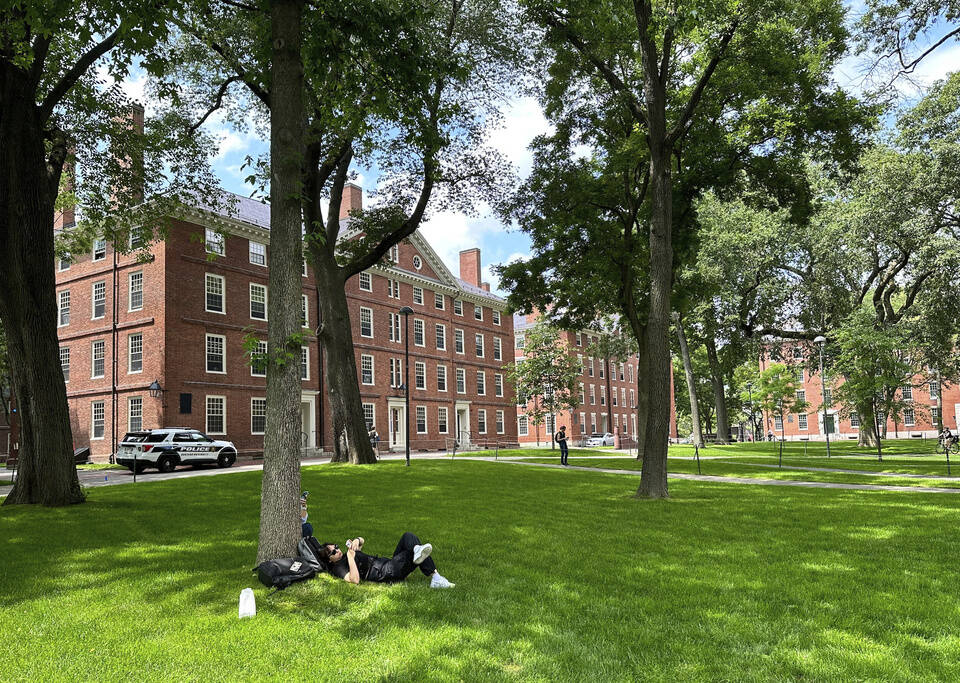In a highly awaited ruling, the Supreme Court handed down its decision on Thursday in two cases related to affirmative action in higher education. In six to three and six to two rulings along ideological lines, the court rejected the use of race as a factor in college admissions.
The justices heard two separate legal challenges over how Harvard University (a private institution) and the University of North Carolina (a public college) decide who to admit. They ultimately decided both violated the equal protection clause of the 14th Amendment.
On Thursday’s show, Megyn was joined by Jason Riley, senior fellow at the Manhattan Institute and author of Maverick, to discuss the ruling and what it means for the college admissions process and education as a whole.
The Majority Opinion
Chief Justice John Roberts, a longtime critic of racial preferences, wrote the court’s majority decision and was joined by Justices Clarence Thomas, Samuel Alito, Neil Gorsuch, Brett Kavanaugh and Amy Coney Barrett. It reads:
“A benefit to a student who overcame racial discrimination, for example, must be tied to that student’s courage and determination. Or a benefit to a student whose heritage or culture motivated him or her to assume a leadership role or attain a particular goal must be tied to that student’s unique ability to contribute to the university. In other words, the student must be treated based on his or her experiences as an individual—not on the basis of race.
Many universities have for too long done just the opposite. And in doing so, they have concluded, wrongly, that the touchstone of an individual’s identity is not challenges bested, skills built, or lessons learned but the color of their skin. Our constitutional history does not tolerate that choice.”
The majority opinion does, however, carve out a loophole:
“At the same time, nothing prohibits universities from considering an applicant’s discussion of how race affected the applicant’s life, so long as that discussion is concretely tied to a quality of character or unique ability that the particular applicant can contribute to the university. Many universities have for too long wrongly concluded that the touchstone of an individual’s identity is not challenges bested, skills built, or lessons learned, but the color of their skin. This Nation’s constitutional history does not tolerate that choice.”
Additionally, Chief Justice Roberts exempted military academies from the ban on race-based admissions “in light of the potentially distinct interests” they may present.
The Dissent
Justice Sonia Sotomayor wrote the main dissent. She was joined by Justice Elena Kagan and, in part, by Justice Ketanji Brown Jackson, who recused herself from the Harvard case due to her previous role on Harvard’s Board of Overseers.
“Today, this Court stands in the way and rolls back decades of precedent and momentous progress,” Justice Sotomayor wrote. “The Court subverts the constitutional guarantee of equal protection by further entrenching racial inequality in education, the very foundation of our democratic government and pluralistic society.”
In her own dissent, Justice Jackson condemned the majority for what she called their “let-them-eat-cake obliviousness”:
“With let-them-eat-cake obliviousness, today, the majority pulls the ripcord and announces ‘colorblindness for all’ by legal fiat. But deeming race irrelevant in law does not make it so in life. And having so detached itself from this country’s actual past and present experiences, the Court has now been lured into interfering with the crucial work that UNC and other institutions of higher learning are doing to solve America’s real-world problems.”
What SCOTUS Got Right
Both Megyn and Riley agreed that the high court’s decision was a good one. “When you hear the Chief Justice describe the process at places like Harvard for admissions, it really does make clear that race is both the initial and the final determining criteria,” Megyn said.
As Riley explained, affirmative action policies may have been put in place to “help increase the ranks of the Black middle class,” but, in practice, “they had been resulting in fewer black doctors, lawyers, and scientists than we would have had in the absence of the policy.”
In his view, the decision “makes America more just for everyone” because “no one should be discriminated against – not blacks, not whites, not Asians, not Hispanics.” This particular case was brought by Asian students who felt they were being passed over for spots at Harvard and UNC because of their race. “Asians were the plaintiffs in this case, but what kind of sense does it make to discriminate against Asians because of what whites did to blacks,” Riley asked. “It makes no sense whatsoever.”
Ultimately, “the best way to go forward is not to discriminate period,” he concluded. “What we’ve learned is that if you allow it to be a factor, it will become the factor.”
You can check out Megyn’s full analysis of the SCOTUS decision by tuning in to episode 578 on YouTube, Apple Podcasts, or wherever you like to listen. And don’t forget that you can catch The Megyn Kelly Show live on SiriusXM’s Triumph (channel 111) weekdays from 12pm to 2pm ET.


